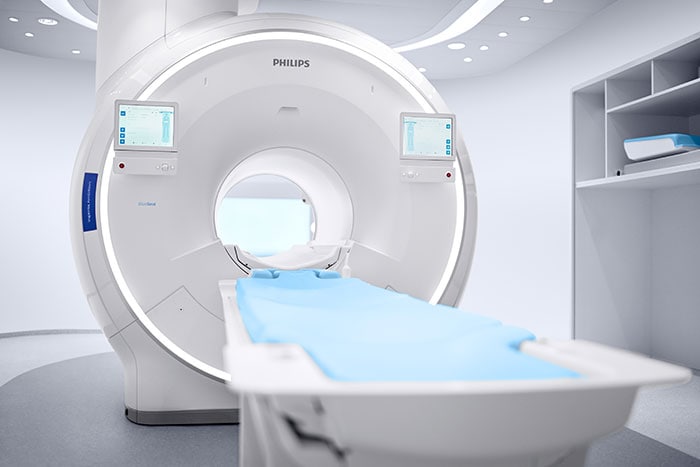Feb 25, 2020
Philips on track to become carbon-neutral in its own operations this year
Philips is set to meet all the targets proposed in its 5-year ‘Healthy people, Sustainable planet’ program, with expansion of its renewable energy sourcing initiatives, and Green Revenues[1] accounting for 67% of revenues and Circular Products & Solutions [2] accounting for 13% of revenues in 2019. Amsterdam, the Netherlands – Royal Philips (NYSE: PHG, AEX: PHIA), a global leader in health technology, is another step closer to becoming carbon-neutral in its own operations in 2020, with its US and Dutch facilities now 100%-powered by renewable electricity. This action on CO2 emissions reduction contributed to a fall in Philips’ operational carbon footprint of 10% compared to 2018, even as the company recorded 4.5% comparable sales growth. The company’s reduced use of airfreight was another contributing factor. Philips’ 2019 sustainability update is an integral part of the Philips Annual Report 2019. Philips is committed to becoming carbon neutral in its own operations and to sourcing all its electricity from 100% renewable sources by the end of 2020. All the company’s US operations were already powered by renewable electricity from the Los Mirasoles wind farm. Then, in 2019, the Krammer and Bouwdokken wind farms in the Dutch province of Zeeland, with which Philips closed long-term contracts through our renewable electricity purchasing consortium with Nouryon, DSM and Google, powered all Philips’ operations in the Netherlands. Combined with the Los Mirasoles wind farm, this covers about half of the company’s total electricity demand. In addition, Philips’ businesses continued to develop their Green Products and Solutions portfolio. In the Diagnosis & Treatment businesses, Green Products and Solutions improve patient outcomes, provide better value, and help secure access to high-quality care, while reducing environmental impact. A good example is BlueSeal magnet technology, which is designed to reduce lengthy and costly disruptions in MRI practice, and help healthcare facilities transition to more productive and sustainable helium-free operations. In the Connected Care businesses, the IntelliVue X3, MX100 and MMX patient monitor platforms feature lower energy usage (18%) and reduced product and packaging weight (11% and 25% respectively) compared to their predecessor products.
Sustainability is a cornerstone of the way we do business because we believe it benefits our customers and society, and because it drives sustainable long-term economic growth.
Frans van Houten
CEO of Royal Philips
“Sustainability is a cornerstone of the way we do business because we believe it benefits our customers and society, and because it drives sustainable long-term economic growth,” said Frans van Houten, CEO of Royal Philips. “I am proud of our strong track record of delivering affordable outcome-focused health technology solutions that will help to achieve universal health coverage, while making sure we do it in a sustainable way that minimizes natural resource consumption and our carbon footprint.” To achieve its vision of making the world healthier and more sustainable through innovation with the goal of improving the lives of 3 billion people a year by 2030, Philips aims to address pressing societal issues with a focus on United Nations Sustainable Development Goals 3, 12 and 13 – three key SDGs aimed at improving access to affordable care, the transition to a circular economy, and action on climate change. Philips’ ‘Healthy people, Sustainable planet’ program is the vehicle that enables the company to deliver on these commitments. Philips’ 2019 highlights include:
Human Rights Report
Today, Philips also published its latest Human Rights Report, underlining the company’s commitment to respect human rights and drive positive human rights impacts. The report contains detailed information about the company’s progress and plans for continuous improvement with regard to proactively identifying and mitigating (potential) adverse human rights impacts in Philips’ own operations and its value chain. [1] Green Revenues are revenues generated through products and services that offer a significant environmental improvement in one or more Green Focal Areas: Energy efficiency, Packaging, Hazardous substances, Weight, Circularity and Lifetime reliability. For healthcare equipment, remote serviceability is another Green Focal Area. The lifecycle approach is used to determine a product’s overall environmental improvement. It calculates the environmental impact of a product over its total life cycle (raw materials, manufacturing, product use and disposal). [2] Circular Revenues are defined by revenues generated through products and solutions that meet specific Circular Economy requirements. These include performance and access-based business models, refurbished, reconditioned and remanufactured products and systems, refurbished, reconditioned and remanufactured components, upgrades or refurbishment on site or remote, and products containing at least 30% recycled plastics. [3] Green Innovation is the Research & Development spend related to the development of new generations of Green Products and Solutions and Green Technologies, addressing SDG 12 (Ensure sustainable consumption and production patterns).
About Royal Philips
Royal Philips (NYSE: PHG, AEX: PHIA) is a leading health technology company focused on improving people's health and enabling better outcomes across the health continuum from healthy living and prevention, to diagnosis, treatment and home care. Philips leverages advanced technology and deep clinical and consumer insights to deliver integrated solutions. Headquartered in the Netherlands, the company is a leader in diagnostic imaging, image-guided therapy, patient monitoring and health informatics, as well as in consumer health and home care. Philips generated 2019 sales of EUR 19.5 billion and employs approximately 80,000 employees with sales and services in more than 100 countries. News about Philips can be found at www.philips.com/newscenter.
Forward-looking statements
This release contains certain forward-looking statements with respect to the financial condition, results of operations and business of Philips and certain of the plans and objectives of Philips with respect to these items. Examples of forward-looking statements include statements made about the strategy, estimates of sales growth, future EBITA, future developments in Philips’ organic business and the completion of acquisitions and divestments. By their nature, these statements involve risk and uncertainty because they relate to future events and circumstances and there are many factors that could cause actual results and developments to differ materially from those expressed or implied by these statements.
Topics
Contacts

Ben Zwirs
Philips Global External Relations
You are about to visit a Philips global content page
ContinueLeandro Mazzoni
Philips Investor Relations Tel.: +31 20 59 77222
Media assets
Press releases
Get our press releases by e-mail
You are about to visit a Philips global content page
Continue









